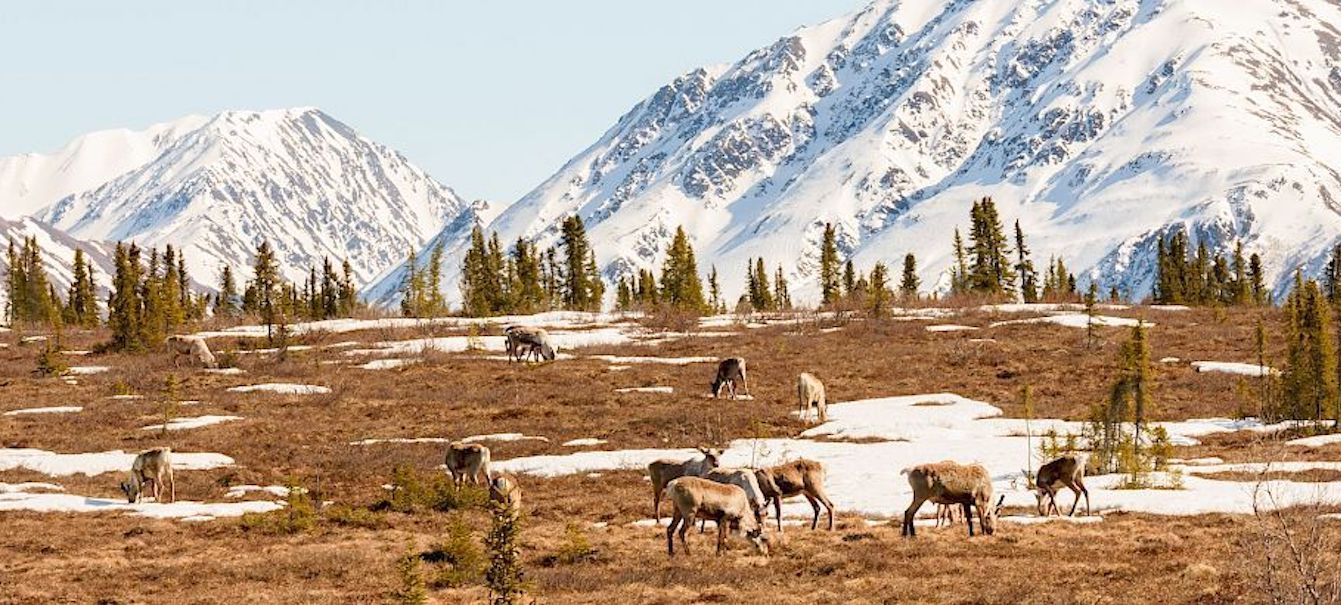FINDING THE NEXUS BETWEEN WATER, ENERGY AND FOOD IN THE ARCTIC

The Sustainable Development Working Group of the Arctic Council will launch the first water, energy and food nexus study in the Arctic. The project will identify interconnections between water, energy and food systems in ways that will contribute to the attainment of the UN Sustainable Development Goals in the Arctic
In 2015, the United Nations introduced the 2030 Agenda for Sustainable Development. At the core of the Agenda are 17 Sustainable Development Goals (SDGs) that serve as benchmarks for achieving equality, prosperity and environmental sustainability around the world.
While Agenda 2030 is a global platform, the Sustainable Development Working Group of the Arctic Council (SDWG) recognizes that its activities naturally contribute towards achieving SDG targets and advancing the sustainable development agenda in the Arctic. However, before those linkages can be further explored, the SDWG stresses the need to better understand the nexus – or the connections and interactions – that occur between SDG targets.
“Simply ticking off SDG targets and failing to consider the nexus between them could result in ill-informed and unintended policy outcomes,” cautioned Stefán Skjaldarson, Chair of SDWG. “For example, advancing one target may inadvertently have a negative impact on the ability to reach other targets. These oversights are particularly problematic in some regions of the Arctic where Indigenous peoples experience greater challenges relative to their national averages. That is why it is so important to first focus on nexus research to ensure that SDG targets can be sustainably achieved in the Arctic.”

WEF-Livelihood Nexus (John Natcher)
In October 2020, the SDWG launched its newly approved project to study the relationship between water, energy and food (WEF) – three pervasive systems that intricately interact in the circumpolar North. This project is led by Canada, Finland and Iceland. It will examine three SDGs: SDG 2 – ending hunger and achieving food security for all; SDG 6 – ensuring the availability and sustainable management of water and sanitation for all; and SDG 7 – ensuring access to affordable, reliable, sustainable and modern energy for all. This is the first WEF nexus study conducted in the Arctic. This analysis will inform research planning and effective policies for sustainable development in the region.
SYNERGIES VERSUS TRADE-OFFS
To study the nexus between water, energy and food, the SDWG will look at synergies and trade-offs between these systems. Synergies include the positive effects of achieving multiple SDG targets through simultaneous interventions, for example through mutually beneficial infrastructure. Trade-offs occur when advancements towards one target have a negative impact on the ability to reach others, whether due to environmental degradation or intensive use of resources.
In addition to calculating the positive and negative interactions between WEF systems, the SDWG will also evaluate the potential impacts on cultural ecosystem services, environmentally based livelihoods and the territorial rights and interests of Indigenous peoples. For example, wind energy may have a positive effect on SDG 7 (sustainable energy) but a negative impact on the livelihoods of herding peoples.
A NEW APPROACH TO WEF NEXUS STUDIES
In the past, WEF nexus studies have been criticized for prioritizing the maximization of resources use and extraction over the livelihoods of resource dependent communities. The SDWG’s project will advance a novel approach to WEF nexus research that explicitly includes the livelihoods of Arctic residents into a system where social-ecological interactions are prevalent and sustainable solutions are found.
The oversights in past WEF nexus studies fail to acknowledge inequalities felt at the community level. Indigenous peoples in the Arctic are heavily reliant on WEF systems to meet their livelihood needs, yet disproportionately experience insecurities in those systems. These inequalities have been made more apparent during the Covid-19 pandemic.
“By improving our understanding of WEF interactions and how they relate to Indigenous livelihoods, we may be in a better position to increase resiliency within the water, energy and food systems and respond more effectively to future shocks like Covid-19,” said David Natcher, professor at the University of Saskatchewan and project lead for the SDWG’s WEF nexus study.
PROJECT OUTCOMES
Ultimately, the project will produce new insights and address knowledge and data gaps to support the SDWG’s efforts to meet the SDG targets in the Arctic. With the participation of the Arctic Council Indigenous Permanent Participants, this research represents a unique opportunity to respond to the United Nations’ call to locate the rights and interests of Indigenous peoples to the center of the SDG agenda.
“By examining the synergies between WEF systems and their influence on the livelihoods of Arctic peoples, we will create innovative pathways for the co-production of knowledge, novel technologies and predictive capabilities informed by both western and Indigenous Knowledge systems,” said David Natcher.
Information collected through this research will be added to an online Decision Support Tool that will combine WEF and livelihood data in ways that can be easily interpreted by decision-makers. A new online WEF nexus course will also be developed through the University of the Arctic. The course will facilitate community responses to WEF related challenges and will be tailored to undergraduate students, government and industry professionals who work in WEF related areas. The project will culminate in an international conference – Nexus Thinking in the Arctic, with keynote presentations made by international experts from in and outside the Arctic.
“This research project is ambitious,” said Stefán Skjaldarson. “However, the current opportunities and challenges experienced in WEF systems in the Arctic – and the implications for Arctic peoples – demand our ambitious efforts.”